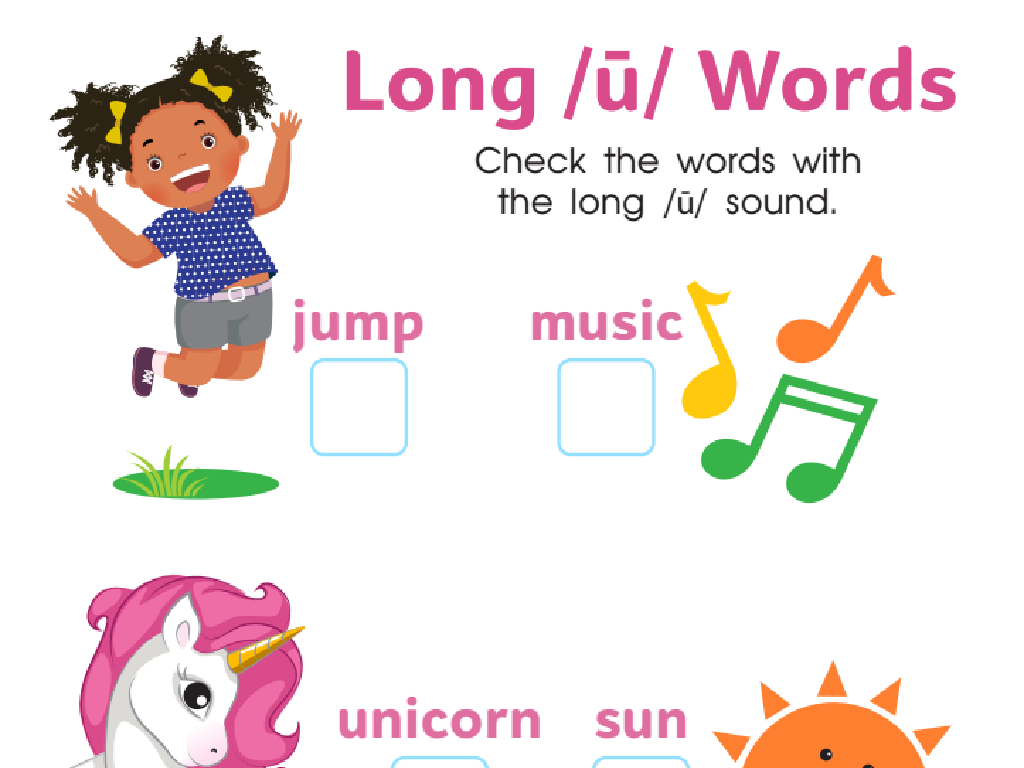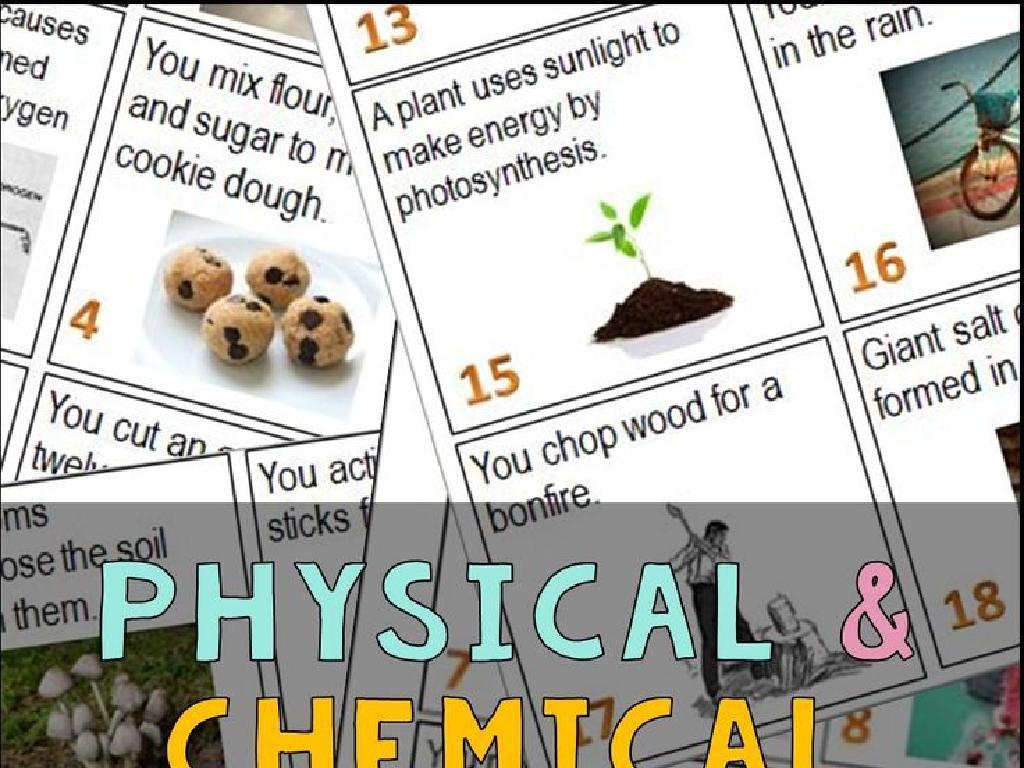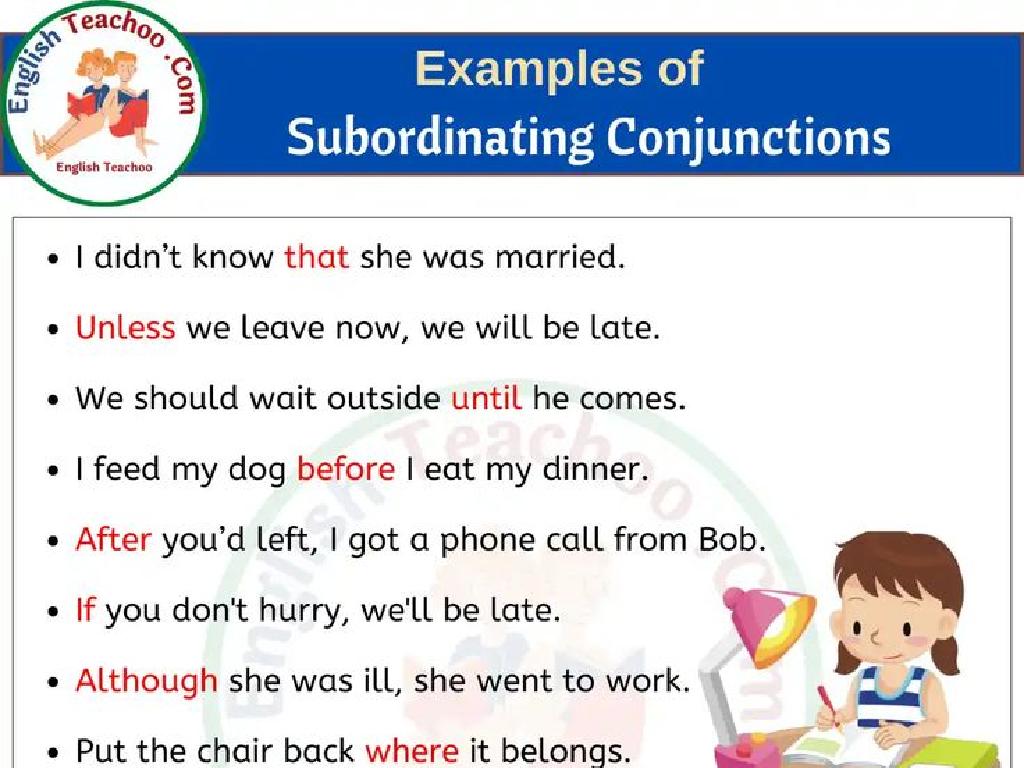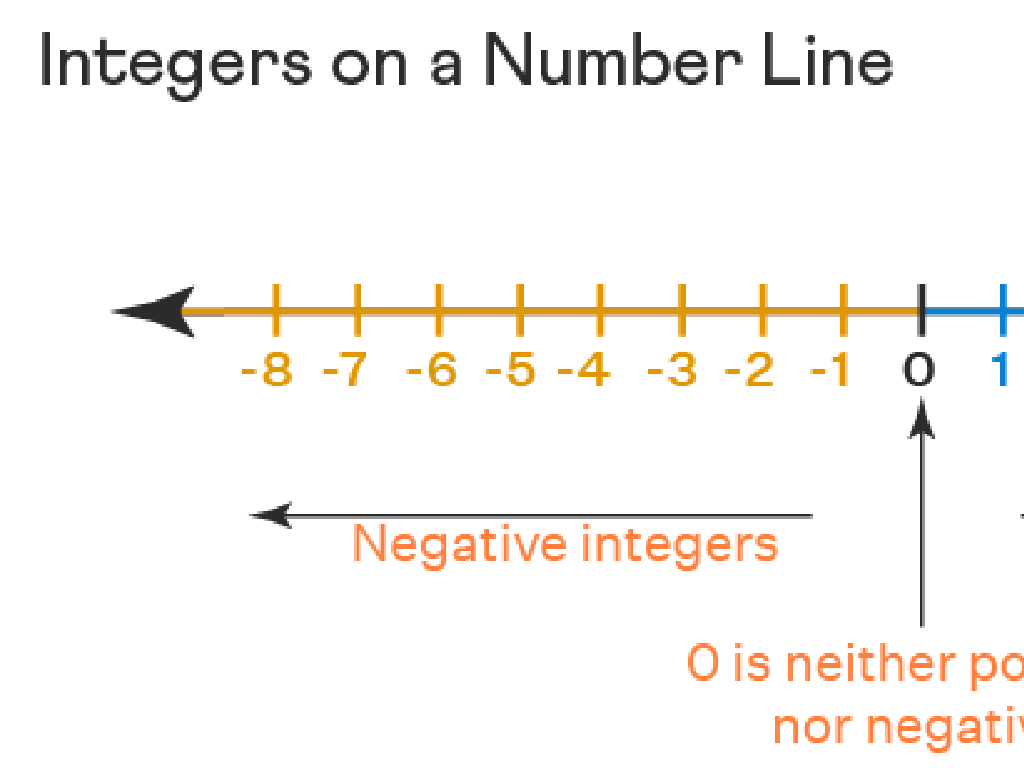Use Dictionary Entries
Subject: Language arts
Grade: Seventh grade
Topic: Reference Skills
Please LOG IN to download the presentation. Access is available to registered users only.
View More Content
Mastering Reference Skills: The Role of Dictionaries
– Importance of reference skills
– Reference skills are crucial for research and learning.
– Types of reference materials
– Encyclopedias, atlases, and almanacs are some examples.
– Dictionaries as a reference tool
– Dictionaries help with meanings, pronunciation, and usage.
– How to use a dictionary effectively
– Learn to look up words and understand the different entries.
|
This slide introduces students to the concept of reference skills, emphasizing their importance in academic research and daily learning. It’s essential to explore the variety of reference materials available, such as encyclopedias for general knowledge, atlases for geographical information, and almanacs for statistical data. The focus, however, is on dictionaries, which are indispensable for understanding word meanings, correct pronunciation, and proper usage. Teach students how to navigate a dictionary, including how to find words quickly and how to interpret the different types of information provided in the entries. This will enhance their vocabulary and comprehension skills. Encourage students to practice by looking up words they encounter in their reading or when writing.
Exploring Dictionaries
– Dictionary definition and purpose
– A book or electronic resource with words and their meanings
– Types of dictionaries
– Standard, picture, thesaurus, bilingual, etc.
– Dictionary organization
– Entries are in alphabetical order for easy navigation
– Understanding guide words
– Guide words at the top help locate words quickly
|
This slide introduces students to the concept of a dictionary and its role as a reference tool in language arts. Begin by explaining what a dictionary is and its primary function, which is to provide word meanings, pronunciations, and other information. Highlight the different types of dictionaries available, such as standard dictionaries, picture dictionaries for visual learners, thesauruses for synonyms and antonyms, and bilingual dictionaries for language translation. Discuss how dictionaries are organized in alphabetical order and how to use guide words at the top of dictionary pages to find words efficiently. Encourage students to explore various dictionaries and practice looking up words to become familiar with these essential reference skills.
Exploring Dictionary Entries
– Components of a dictionary entry
– Entries include word, pronunciation, part of speech, and definition.
– Deciphering pronunciation symbols
– Pronunciation symbols guide correct speech.
– Syllable division in words
– Words are broken into syllables for ease of reading.
– Multiple meanings of words
– Words can have several definitions based on context.
|
This slide aims to familiarize students with the structure and use of dictionary entries. Start by explaining each part of a dictionary entry, including the word itself, its pronunciation using phonetic symbols, the part of speech it belongs to, and its definition(s). Emphasize the importance of understanding pronunciation symbols and syllable divisions to improve reading and speaking skills. Highlight how a word can have multiple meanings and how the context determines which meaning is appropriate. Encourage students to practice by looking up words in a dictionary and identifying these components. Provide examples of words with multiple meanings and discuss how to determine the correct meaning from context.
Mastering Dictionary Skills
– Quick word lookup strategies
– Alphabetical order & word parts can speed up searching
– Utilizing guide words effectively
– Guide words at the top show the first & last words on a page
– Practice with ‘meticulous’
– What does ‘meticulous’ mean? Use the dictionary to find out
– Enhancing vocabulary skills
|
This slide aims to equip students with the skills necessary to use a dictionary efficiently. Emphasize the importance of understanding alphabetical order and breaking down words into parts (prefixes, suffixes, roots) to speed up the search process. Guide words are also crucial; they are found at the top of dictionary pages and can help students quickly navigate to the correct page. For practical application, have students look up the word ‘meticulous’ and discuss its meaning, pronunciation, and usage. This exercise will not only help them understand the word but also reinforce how to use dictionary guide words. Encourage students to practice with other words to become more confident in their reference skills.
Navigating Dictionary Entries
– Analyze example dictionary entries
– Look at structure, word forms, and meanings
– Discuss context and word choice
– Words can have different meanings depending on the sentence
– ‘Set’: A word in various contexts
– ‘Set’ can mean ‘to put something down’ or ‘a collection of items’
– Practice with different ‘set’ meanings
– Find ‘set’ in a dictionary and see how many meanings you can find
|
This slide aims to teach students how to effectively use a dictionary by analyzing entries and understanding the importance of context in determining word meaning. Start by reviewing the structure of a dictionary entry, including the word’s pronunciation, part of speech, and definitions. Highlight how a single word can have multiple meanings and emphasize the role of context in choosing the correct definition. Use ‘set’ as a concrete example to illustrate this concept, as it is a word with numerous definitions. Encourage students to practice by looking up ‘set’ in their dictionaries and exploring its different meanings. This will help them become more proficient in using reference materials to enhance their vocabulary and reading comprehension skills.
Dictionary Scavenger Hunt Activity
– Pair up for a dictionary quest
– Find and note down word entries
– Look up the meaning, pronunciation, and usage of each word
– Share discoveries with the class
– Each pair presents an interesting word entry to the class
– Discuss dictionary skills application
– How can these skills help with homework or understanding new subjects?
|
This interactive class activity is designed to enhance students’ dictionary skills. By working in pairs, students will engage in a scavenger hunt to find specific word entries in a dictionary. They will write down the definitions, pronunciations, and examples of usage for each word. After the hunt, pairs will share their most interesting findings with the class, fostering a collaborative learning environment. Conclude the activity with a discussion on the importance of dictionary skills, emphasizing how they can be applied in daily life, such as understanding homework assignments, reading comprehension, and learning new subjects. Provide guidance on how to effectively use a dictionary and encourage students to think of times when these skills could be beneficial.






